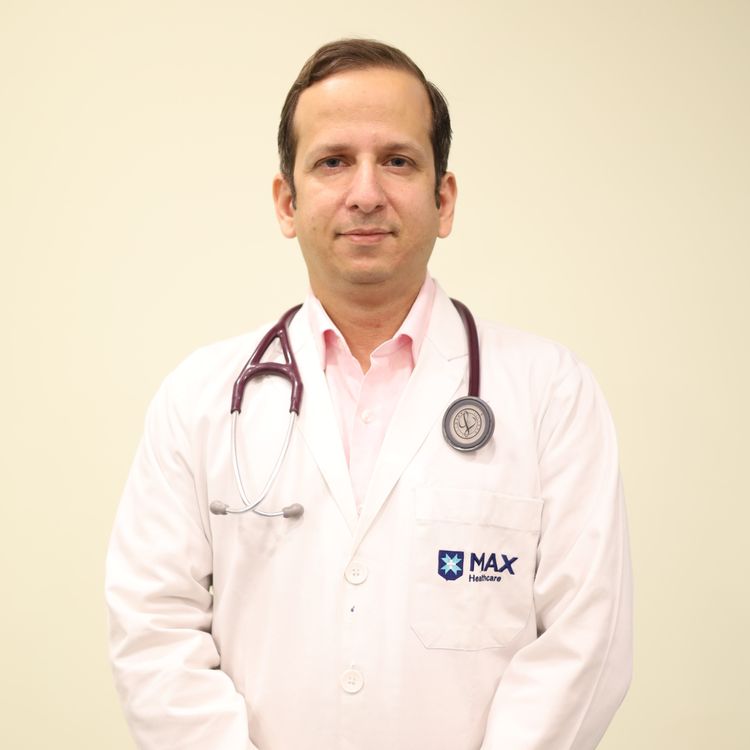
World COPD Day: Raising Awareness for Better Lung Health
By Dr. Vivek Kumar Verma in Pulmonology , Allergy
Nov 14 , 2023 | 3 min read
Your Clap has been added.
Thanks for your consideration
Share
Share Link has been copied to the clipboard.
Here is the link https://www.maxhealthcare.in/blogs/lung-health-awareness-on-world-copd-day
World COPD Day is observed annually on the third Wednesday of November to raise awareness about Chronic Obstructive Pulmonary Disease (COPD), a prevalent but often underestimated respiratory condition. The day educates people about COPD, its symptoms, causes, stages, treatment options, and the importance of early diagnosis and management.
What is COPD?
Chronic Obstructive Pulmonary Disease, also known as COPD, is a chronic respiratory condition that is characterized by progressive and irreversible damage to the airways and the lungs. It encompasses two main conditions: chronic bronchitis and emphysema. The primary feature of COPD is airflow limitation, making it difficult for affected individuals to breathe.
Symptoms of COPD
The symptoms of COPD can be stealthy and may include:
- Chronic cough: Often producing mucus.
- Shortness of breath: Particularly during physical activity.
- Wheezing: A whistling sound while breathing.
- Chest tightness: A feeling of pressure or discomfort in the chest.
- Frequent respiratory infections: COPD makes the lungs more vulnerable to infections.
Causes of COPD
COPD is primarily caused by prolonged exposure to irritants that damage the lungs and airways. Common risk factors and causes include:
- Smoking: Smoking tobacco is a leading cause of COPD. It's estimated that about 80-90% of COPD cases are related to smoking.
- Occupational exposures: Exposure to workplace irritants like dust, chemicals, and fumes can contribute to COPD.
- Genetic factors: In some cases, a genetic predisposition can make individuals more susceptible to developing COPD.
- Air pollution: Long-term exposure to high levels of air pollution can also contribute to COPD.
Stages of COPD
COPD typically progresses through four stages based on the severity of symptoms and lung function:
- Stage 1 (Mild): In the early stage, airflow limitation is mild, and symptoms may not be very noticeable. Cough and mucus production might be present.
- Stage 2 (Moderate): As the disease advances, lung function declines further, leading to more pronounced symptoms. Shortness of breath during physical activity becomes more evident.
- Stage 3 (Severe): At this stage, COPD significantly impairs lung function. Symptoms like shortness of breath, cough, and mucus production are frequent and may interfere with daily activities.
- Stage 4 (Very severe): In the most advanced stage, lung function is severely compromised. Quality of life is significantly affected, and exacerbations are common.
Read more - Impact of Air Pollution on the Lungs and Heart
Treatment Options
While COPD is not curable, several treatment options are available to manage the disease and improve the quality of life for those affected:
- Bronchodilators (short-acting and long-acting bronchodilators): These are inhaled medications that help relax the airway muscles, making it easier to breathe. Short-acting bronchodilators provide quick relief, while long-acting bronchodilators offer extended control of symptoms.
- Inhaled Corticosteroids (anti-inflammatory medications): These medications are anti-inflammatory drugs that reduce inflammation in the airways. They are often used in combination with bronchodilators, especially in more severe cases of COPD.
- Phosphodiesterase-4 (PDE-4) Inhibitors (anti-inflammatory medications): Medications like PDE-4 inhibitors reduce airway inflammation and decrease the frequency and severity of exacerbations in COPD patients.
- Mucolytics (mucous-thinning medications): Mucolytics are a group of medications that help thin and clear mucus from the airways. This makes it easier to cough up mucus and reduces the chances of respiratory infections in individuals with COPD.
These medication groups play a crucial role in managing COPD by improving airflow, reducing inflammation, and minimizing symptoms, ultimately enhancing the quality of life for those affected by the condition. Healthcare providers determine the medications based on the individual patient's needs and the severity of their COPD.
Read more - Air Pollution and Risk of Lung Cancer
World COPD Day is a reminder of the importance of recognizing, understanding, and managing this chronic respiratory condition. Early diagnosis and proper management can drastically improve the quality of life for individuals living with COPD. Additionally, raising awareness about COPD's causes, symptoms, and stages can help prevent the disease and encourage lifestyle changes that promote lung health. By breathing easy and taking necessary precautions, we can all contribute to a world where COPD is better understood, diagnosed, and managed.

Written and Verified by:

Related Blogs

Dr. Inder Mohan Chugh In Pulmonology , Health And Wellness
Nov 08 , 2020 | 3 min read

Medical Expert Team
Jun 06 , 2015 | 2 min read
Blogs by Doctor

Lung Cancer Causes, Symptoms, Diagnosis and Prevention
Dr. Vivek Kumar Verma In Cancer Care / Oncology
Nov 09 , 2016 | 3 min read

Protecting Youth from Tobacco: Effective Prevention Strategies
Dr. Vivek Kumar Verma In Pulmonology
May 29 , 2023 | 2 min read
Most read Blogs
Get a Call Back
Related Blogs

Dr. Inder Mohan Chugh In Pulmonology , Health And Wellness
Nov 08 , 2020 | 3 min read

Medical Expert Team
Jun 06 , 2015 | 2 min read
Blogs by Doctor

Lung Cancer Causes, Symptoms, Diagnosis and Prevention
Dr. Vivek Kumar Verma In Cancer Care / Oncology
Nov 09 , 2016 | 3 min read

Protecting Youth from Tobacco: Effective Prevention Strategies
Dr. Vivek Kumar Verma In Pulmonology
May 29 , 2023 | 2 min read
Most read Blogs
- CAR T-Cell Therapy
- Chemotherapy
- LVAD
- Robotic Heart Surgery
- Kidney Transplant
- The Da Vinci Xi Robotic System
- Lung Transplant
- Bone Marrow Transplant (BMT)
- HIPEC
- Valvular Heart Surgery
- Coronary Artery Bypass Grafting (CABG)
- Knee Replacement Surgery
- ECMO
- Bariatric Surgery
- Biopsies / FNAC And Catheter Drainages
- Cochlear Implant
- More...




